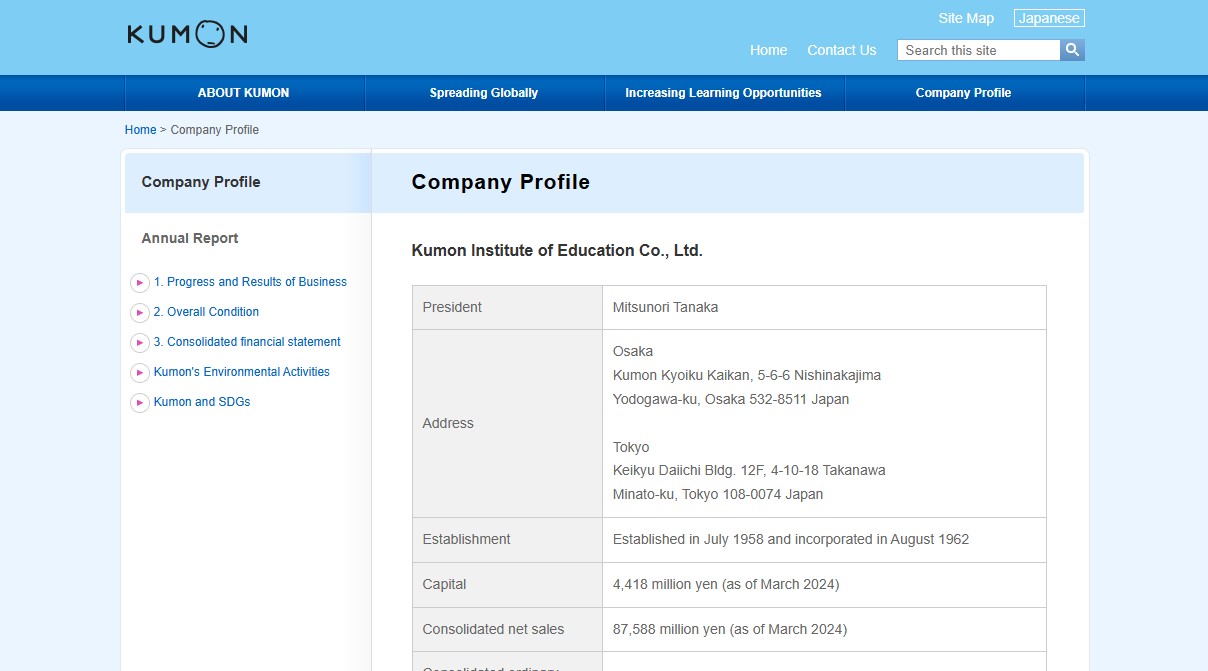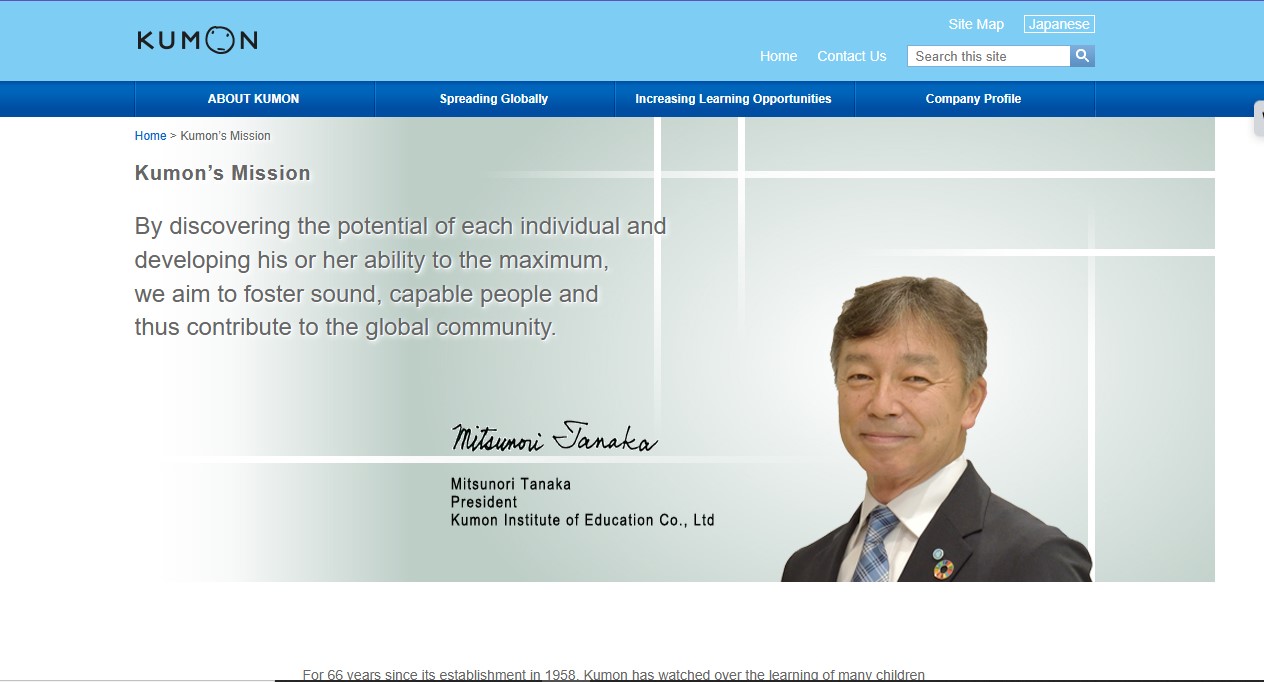Kumon is a global after-school math and reading program founded by Toru Kumon. He developed the Kumon Method in the 1950s and opened the first center in 1955. Today Kumon has grown to over 6 million students in 25,000+ centers across 60+ countries. It emphasizes self-paced learning with daily worksheets. This article reviews Kumon’s offerings, pricing, and real user feedback in 2025. We will also compare Kumon to alternatives like My Engineering Buddy and other tutoring options to help parents choose the best fit.

Kumon Reviews and Testimonials
Online reviews of Kumon are mixed. Kumon’s official site highlights positive testimonials praising independence and discipline – for example, one parent says “Kumon teaches you how to teach yourself” and another notes it gave “a sense of discipline and perseverance”. However, independent review sites report many complaints. For instance, Trustpilot averages about 3 out of 5 stars and Sitejabber about 1.5 out of 5. Consumer sites like PissedConsumer score Kumon very low (around 1.7/5).
Reddit discussions show parents praising stronger fundamentals and confidence in some children, but others criticize the method as too repetitive and not teaching deeper understanding. In short, most parents agree Kumon is legitimate, but experiences vary widely: some see concrete progress, while others find the work too monotonous or expensive.
Kumon Pricing
Kumon’s fees vary by location, but typical costs are about $100–200 per month per subject. There are often extra fees. One parent reported an initial cost of $680 (roughly $300 for first-month tuition, $300 deposit, $50 registration, $30 materials). Families note that these initial and monthly fees can add up. Kumon plans are usually paid monthly or even yearly. Discounts are limited; for example, some centers offer about $10 off per month if the child studies both math and reading simultaneously.
Kumon typically provides a free placement test and consultation at enrollment, but no ongoing free trial beyond that. Importantly, Kumon’s refund policy is strict: you generally must give about 30 days’ notice to cancel, or you may still be billed for the next month. In practice, parents say there are no partial refunds for unused classes. Overall, Kumon is viewed as a premium service in terms of cost, which some reviewers explicitly mention when judging its value.
Kumon Alternatives
Many families consider alternatives if Kumon’s method or cost isn’t ideal. Notable options include:
- My Engineering Buddy (MEB) – A global 1:1 online tutoring platform covering 100+ STEM subjects for K-12 and beyond. MEB connects students with expert tutors from around the world. The company says it “hires only top tutors” and enjoys 5-star parent ratings (97% student satisfaction) despite “not very cheap” pricing. MEB offers personalized instruction in many subjects, in contrast to Kumon’s fixed math/reading curriculum.
- Khan Academy – A nonprofit providing free online courses in math, science and more. Khan’s mission is “free, world-class education” for anyone, anywhere. It offers video lessons and practice problems covering K–12 topics. This is in contrast to Kumon’s paid, worksheet-driven approach.
- Sylvan Learning – A tutoring franchise offering programs in math, reading, writing and test prep for K–12. Sylvan uses small-group or private tutoring with a personalized curriculum. Like Kumon, Sylvan emphasizes a structured curriculum, but with a more hands-on instructor-led approach.
- Mathnasium – A math-only tutoring chain (2002-founded, ~1,000 centers in the US). It offers one-on-one math instruction (no group classes) tailored after an initial assessment. Mathnasium is similar to Kumon in focusing on fundamentals, but it only teaches math and has dedicated tutors guiding each lesson.
- Online Tutor Marketplaces (e.g. Wyzant, Varsity Tutors) – Websites where students hire tutors on-demand for any subject. These platforms allow learners to pick tutors based on expertise, schedule flexible sessions, and pay by lesson. Unlike Kumon’s fixed program, these sites offer fully customized one-on-one tutoring.
- Other EdTech Platforms – Some families use apps like Brighterly (focused math tutoring) or IXL (skill practice), but these vary in format. In general, alternatives to Kumon often emphasize live instruction, technology or free resources instead of Kumon’s traditional paper worksheets.
How it Works
For Students
To start Kumon, a parent first finds a local center and books a free placement test. The child is given worksheets tailored to the right level (even below or above current grade). Students usually attend Kumon centers 1–2 times per week (in person or online) for around 30 minutes per session. During class, an instructor or assistant checks the completed worksheets and gives new ones at a slightly higher level. In between, the student practices daily at home with the assigned worksheets. The process is largely self-directed: students learn by repeating problems with guidance only if needed.
For Tutors
Kumon centers hire instructors (often part-time) who work with the students. According to Kumon’s career pages, they recruit center assistants and instructors to staff their 3,000+ North American centers. Hiring is done locally at each center. As a result, many Kumon tutors are high-school or college students – a Kumon instructor notes it “depends on the center”, with some hiring high-schoolers and others hiring college graduates. Centers often do not require a formal resume or prior experience (volunteering first can help get hired).
Pay rates are modest; one instructor mentions Kumon pay is “generally a pretty low paying job”. Kumon tutors follow strict guidelines, primarily grading work and guiding practice. Instructors say Kumon is “not tutoring” in the usual sense but rather providing “guidance for self-learning”. For tutors hired by My Engineering Buddy and similar platforms, the process differs: those platforms typically require background checks, degrees, or teaching experience, and tutors set their own rates and hours (as MEB’s emphasis on “top tutors” suggests).
Tutor FAQs
- Do I need a degree to teach Kumon? Not really. Kumon centers often hire enthusiastic older students or community members. A college degree or teaching credential is not usually required.
- What are the hours like? Kumon centers usually operate after school hours and weekends. Tutors work fixed shifts when classes run. It is not 24/7 or flexible.
- What is the pay? Pay varies by center and location. Many Kumon tutors report relatively low wages or hourly pay. For example, one instructor called it a “low paying job”. By contrast, online platforms often pay per session; MEB tutors may earn more competitive rates due to higher qualifications.
- What do tutors actually do? Kumon tutors grade the student’s completed worksheets, correct mistakes, and assign new work. They motivate students but do not formally teach new concepts. This hands-off style is by design (Kumon calls it “self-learning guidance”).
- How do I apply? For Kumon, you apply at a local center (often just walking in or online registration on kumon.com). My Engineering Buddy and similar companies have online applications or registration forms; MEB’s site and LinkedIn note a rigorous screening of tutors.
Kumon Company Information
Founding and History
Kumon was created by Japanese educator Toru Kumon. He started tutoring his son in 1954, and by 1958 he formalized the program as the Kumon Institute of Education. The method spread quickly in Japan, and the first overseas center opened soon after. Today Kumon is known worldwide as one of the largest supplemental education franchises.

Mission and Vision
Kumon’s stated mission is “to contribute to society by nurturing the next generation of leaders who believe in their own strength and potential”. In practice, Kumon focuses on helping each child build basic academic skills and become a self-learner. The company emphasizes continuous learning (“the organization that never stops learning”) and even has a goal of promoting education-driven “world peace” on a societal level. In North America, Kumon’s vision is to make the Kumon Method benefit as many children as possible and help them become independent learners.
Scale of Operations
Kumon is massive in scale. It serves over 6 million students via more than 25,000 Kumon Math & Reading Centers worldwide. There are 3,000+ centers in North America alone. Every year new franchises open in the US, Canada, Europe, Asia, Gulf countries, etc. Kumon materials are translated into many languages, and the program is present on every continent. Such scale and longevity underline that Kumon is a well-established program.
Services and Subjects
Kumon offers two main programs: math and reading/English. The math program spans from basic number skills (counting, addition/subtraction) up through advanced topics (algebra, functions, calculus). For example, Kumon’s math levels cover counting, arithmetic operations, fractions, basic algebra, functions, and calculus. The reading program builds from fundamental reading and writing to higher-level skills.
In Kumon UK, the English program covers repeating/reciting, basic reading and writing, sentence and paragraph building, summarization and even analytical critique of texts. Some Kumon centers also offer programs like English-language learning or test prep, but the core worldwide curriculum is math and reading. Homework help and test preparation are supplemental benefits of the structured work, but Kumon does not offer separate official test-prep courses (unlike some competitors).
Unique Features
- Individualized Pacing: Kumon assesses each student and sets worksheets “at just the right level” for them. Students do not use grade-level textbooks but progress through levels as they master each concept.
- Self-Learning Focus: The Kumon Method trains students to learn on their own. A parent testimonial notes that Kumon “teaches you how to teach yourself”. Instructors provide guidance, but students do most of the thinking.
- Strong Foundations: By design, Kumon drills basic skills thoroughly. One review explains Kumon’s aim is to make sure each key skill is mastered before moving on. This repetition builds fluency and accuracy.
- Discipline and Confidence: Many parents report that Kumon builds good study habits. One testimonial highlights the “discipline and perseverance” that students gain. The daily routine of Kumon can foster focus.
- Global Track Record: Kumon’s presence in 60+ countries with millions of alumni shows its approach has wide acceptance. It has a long history (since 1958) and brand recognition worldwide.
Drawbacks of Kumon
- Repetition: Many reviewers complain that Kumon’s worksheets can be very repetitive. Students often redo similar problems until they are fast and accurate. For some children, this becomes boring or frustrating.
- Limited Teaching Interaction: Kumon instructors primarily grade worksheets; they do not formally teach new concepts. As one instructor explains, Kumon is “self-learning guidance” rather than tutoring. Some students find that higher-level concepts (like algebra beyond arithmetic basics) are not explained, making advanced topics hard to grasp.
- Slow Progress at High Levels: Because advancement is mastery-based, progress can seem slow. A former student noted Kumon was helpful up to middle levels, but “wasn’t much good for higher math” like precalculus or calculus. Others say Kumon “is only worth it under age 7,” since older students often struggle without more explanation.
- Cost and Fees: Kumon is relatively expensive. In addition to monthly tuition, families report hidden fees like deposits and material charges. Some parents feel the service is not worth the price, especially given the heavy repetition.
- One-Size-Fits-All Method: The Kumon method is very regimented. Critics say it does not adapt to different learning styles. If a child doesn’t excel at independent worksheet practice, they may lose interest or fall behind.
Comparison with My Engineering Buddy
- Pricing: Kumon charges a fixed monthly tuition (~$50–$200/subject). My Engineering Buddy tutors charge hourly rates (varies by tutor and subject). MEB admits “the charges are not very cheap” but highlights that parents find it good value for quality.
- Tutor Expertise: Kumon instructors are locally hired assistants (often high school or college students). My Engineering Buddy says it hires “only top tutors” with strong STEM backgrounds (often graduate-level). MEB tutors are professionals chosen for subject mastery.
- Personal Attention: Kumon typically uses group classes or multiple students per instructor. MEB offers 1-on-1 online sessions tailored to the student. This means MEB can focus on a student’s exact needs, whereas Kumon follows a fixed self-study format.
- Subjects Offered: Kumon covers math and reading. MEB covers math, physics, engineering, and many STEM subjects up to college level. So MEB offers a wider range of topics.
- Reviews and Outcomes: Kumon has mixed reviews on public sites. MEB advertises nearly all 5-star ratings and 97% satisfaction. While marketing claims should be weighed, they suggest very positive feedback on MEB’s personalized approach.
Customer Support and Policies
Kumon’s support is largely handled by each center. Students and parents usually contact their local instructor for help. In North America, Kumon’s headquarters lists a toll-free number (1-800-222-6284) and offices in New Jersey and Canada. (Other countries have their own Kumon support.) Technical issues (like with Kumon Connect) can be resolved by instructors or by contacting Kumon staff trained for support. Official policies are center-specific: refunds and cancellation rules are set by each center’s contract. As noted, you generally must give 30-days’ notice to stop tuition. Kumon publishes some FAQs on its site and encourages feedback, but families often rely on center staff for questions about schedules and make-up classes.
Global Reach and Localization
Kumon is truly international. It operates in roughly 50–60 countries worldwide. In each region, materials are localized. For example, Kumon UK offers a Math program and an English (reading/writing) program. Worksheets and instructions are in the local language (English, Spanish, French, Arabic, etc.). Curriculum content may vary slightly: some centers add local math standards or offer dual-language options. The core method remains the same globally, but franchise owners adapt marketing and customer service to local needs. With centers in the US, UK, Australia, Canada, and Gulf countries (among others), Kumon’s presence in affluent markets is especially strong, aligning with the target audience.
Kumon’s Future Plans
Kumon has been modernizing with technology. In 2024 it launched Kumon Connect, a web-based app for tablet use. Students can complete the same Kumon worksheets digitally and parents can track progress online. Reports from instructors indicate that Kumon Connect uses AI to help grade answers (with human oversight). This AI marking can automate much of the grading work. Kumon’s senior leadership also announced an “English for Spanish Speakers” program in 2024 to serve bilingual communities. Overall, Kumon’s innovations (digital worksheets, AI grading, new language tracks) suggest the franchise is adding tech-driven features. We can expect Kumon to roll out more levels on Connect and perhaps other AI-enabled tools, even though its core method stays rooted in self-learning practice.

FAQs about Kumon
Q: Is Kumon a scam or legitimate? A: Kumon is a legitimate international education franchise. It has a 60+ year history and millions of alumni. Some people might feel it’s not worth the price or don’t like the method, but it is not a scam. The program is licensed and widely accredited. While no tutoring program is perfect, Kumon’s consistent global presence and corporate structure show it is a real, established business.
Q: How does Kumon compare to My Engineering Buddy? A: Kumon is mostly in-person (or virtual class) and uses workbooks; it focuses on math and reading. My Engineering Buddy (MEB) offers live one-on-one online tutoring for math, science, and engineering. MEB’s tutors are hired for strong credentials and work flexibly; Kumon’s instructors follow a fixed schedule. In short, MEB offers custom, on-demand help in many STEM subjects, whereas Kumon offers a structured, drill-based curriculum at set centers.
Q: What does Kumon cost? A: Parents can expect to pay roughly $100–$200 per month for one subject. There may be an enrollment fee and materials fee up front. Kumon is a monthly commitment; there is no pay-per-lesson option. Costs depend on your local center, but in many cities Kumon is seen as fairly expensive compared to casual tutoring.
Q: What ages and subjects does Kumon cover? A: Kumon has programs starting at preschool age through high school. Its math curriculum covers basic counting up through calculus. Its reading/English curriculum covers basic literacy through advanced comprehension and writing (sentence and paragraph composition, summarization, critique). Essentially, Kumon can serve children from age ~3–4 up through teens (and even adult self-learners, though the main market is K–12).
Q: Are there alternatives I should consider? A: Yes. Free resources like Khan Academy offer K–12 lessons at no cost. Franchises like Sylvan or Mathnasium provide private tutoring (Sylvan covers many subjects, Mathnasium only math). Online platforms (Wyzant, Chegg, etc.) let you hire a tutor for any subject on-demand. My Engineering Buddy is an online platform for math & STEM, with top-rated tutors. The best choice depends on your child’s needs: some families prefer Kumon’s regimented routine, others want more interactive or flexible tutoring.
Conclusion
Kumon’s core strengths are its proven system and disciplined approach. It provides well-structured practice that can build confidence, strong fundamentals, and study habits. Its long track record and global footprint attest to its legitimacy. On the other hand, Kumon’s weaknesses – such as monotony, high cost, and limited one-on-one teaching – are evident in many reviews. Overall, Kumon works best for students who thrive on routine and self-study.
For families seeking more personalized, flexible help in math or science, modern alternatives like My Engineering Buddy can be a great option. MEB offers expert 1:1 tutoring online and has very positive feedback (“5 stars” at 97% satisfaction). In summary, Kumon has clear benefits in building discipline and basics, but parents should weigh its drawbacks and consider alternatives like MEB that provide personal attention and advanced subject support.
******************************
This article provides general educational guidance only. It is NOT official exam policy, professional academic advice, or guaranteed results. Always verify information with your school, official exam boards (College Board, Cambridge, IB), or qualified professionals before making decisions. Read Full Policies & Disclaimer , Contact Us To Report An Error

